Photos by Ralph Freso / Slideshow
When you can hear the clashing of the swords echo and are struck by the house lights reflecting off the neck of the blade, you know you're in for a play filled with tragedy and drama.
And, in this case, a Shakespeare classic.
"Hamlet" opens the academic year with a set that transforms the Ethington Theatre stage to reflect the cold and dark isolation of Denmark. The set designers and lighting technicians set the eerie atmosphere through a cold moonlit hue of blue cast onto a dark, simple set — which contrasts to the complexities of the characters.
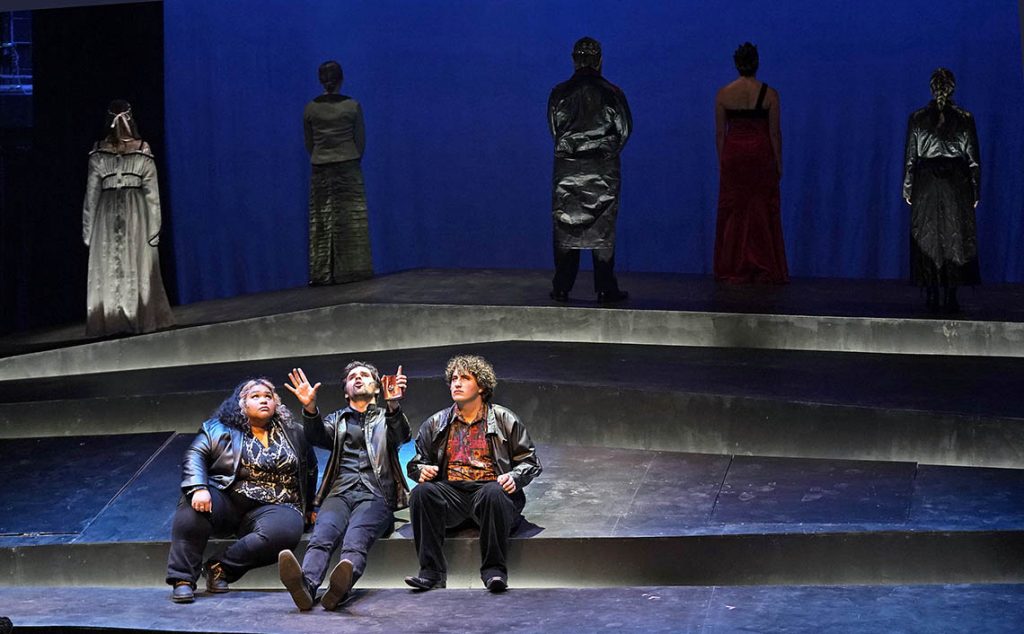
The curtain opens to reveal a world that is completely shattered. The set displays a series of multilevel ramps that are tilted and crevices that symbolize the cracks in the earth, foreshadowing other themes in the play.
Typically, the stage for a Grand Canyon University play includes props and intricate detail. Set designer Bill Symington took a twist that deviates from the extravagant displays. His vision for the set is still complex — but in a different way, opening the floor for the audience to devise its own perspectives of “Hamlet.”
“The set design is completely black, which in theatre we normally do opposite. We wanted to strip it down to bare bones of human emotions and people’s behavior and create a sense of drama and energy in the purest way,” said Symington. “We want the audience to question why the set is off-balance and tilted. We don’t necessarily need the audience to know our motivations or what the theme is, but we for sure want them to feel something.”
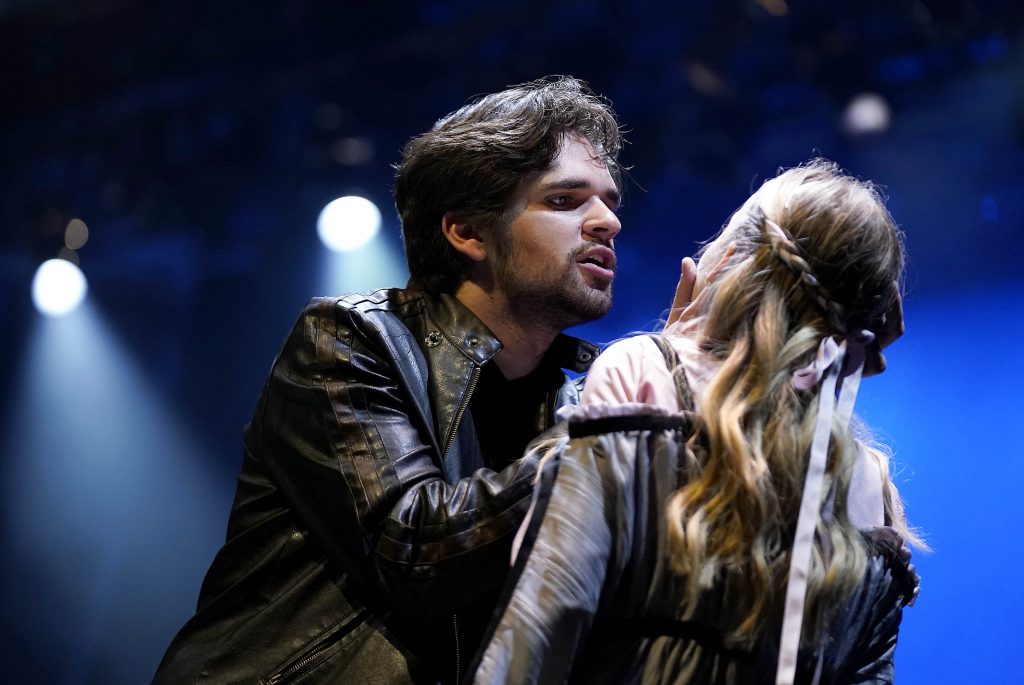
Another twist: Maddie Burgess plays Horatio, Hamlet’s best friend, who in the play is written as a male.
“What I found interesting is that being a woman changes the relationship between Horatio and Hamlet as platonic best friends,” she said. “I like the feminine care that Horatio has for Hamlet and ability to empathize, which is not necessarily written into the original character as a male.”
In his 40th year in show business and third rotation of “Hamlet,” director Claude Pensis wants the audience experience to be dependent on many factors: the cast, energy and the experiences we endure throughout life.
“Time changes your perspective and informs your understanding. How I felt about 'Hamlet' when I was 20 is very different than when I was in my 40s and when I’m in my 60s,” Pensis said.
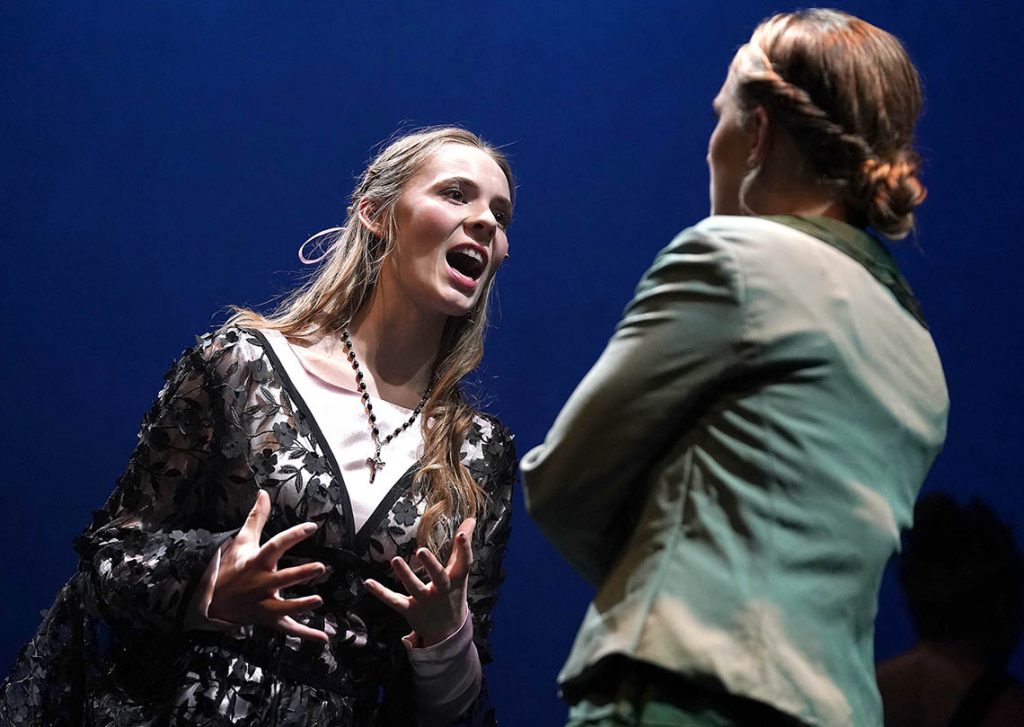
The 421-year-old play remains a timeless story. While the script stays the same, the actors' and director’s unique perspective are what promises diversity. GCU’s theatre students defy time and the repetitiveness of “Hamlet” with each performance.
“We’re not in the business to imitate the past," Symington said. "Otherwise, what would be the point of doing plays over again? Each year we are given a new group of students, a new cast, and every director is going to have a different perspective and approach.”
Along the walls of Pensis’ office was a diagram mapping out the 2½-hour-plus production. Alongside the preparations that started in the summer was researching the pivotal driving force of the play — grief.
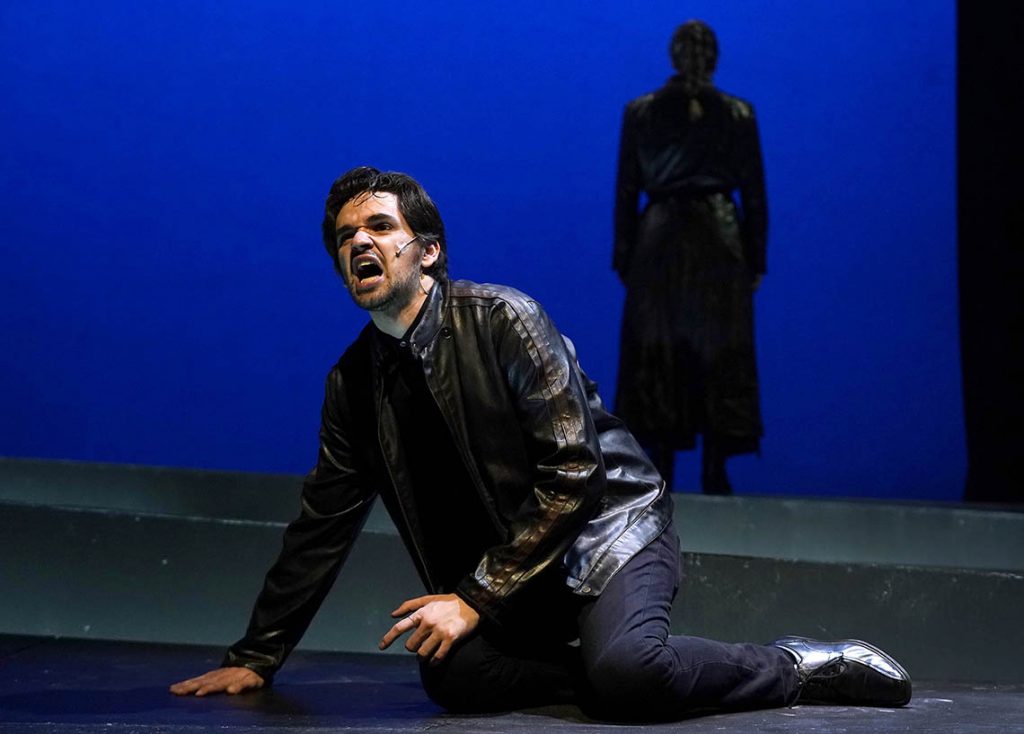
“For us, the major emphasis is dealing with grief, but a specific type of grief that is so overwhelming that it is seemingly impossible to get past," Pensis said. "If we are dealing with grief, we are largely dealing with mental health. Every university in the world deals with that or has programs of that sort.”
Embodying the level of grief and the complexities that come with playing Hamlet is difficult. Senior theatre major Dexter Tuten worked hard on the role, first by comparing different editions of the script.
“I needed to understand why it was written one way and not another way," he said. "There were lots of words to define — not just to define but really soak in the meaning them. It’s not just about knowing what you’re saying. It has to be as if the words came from you.”
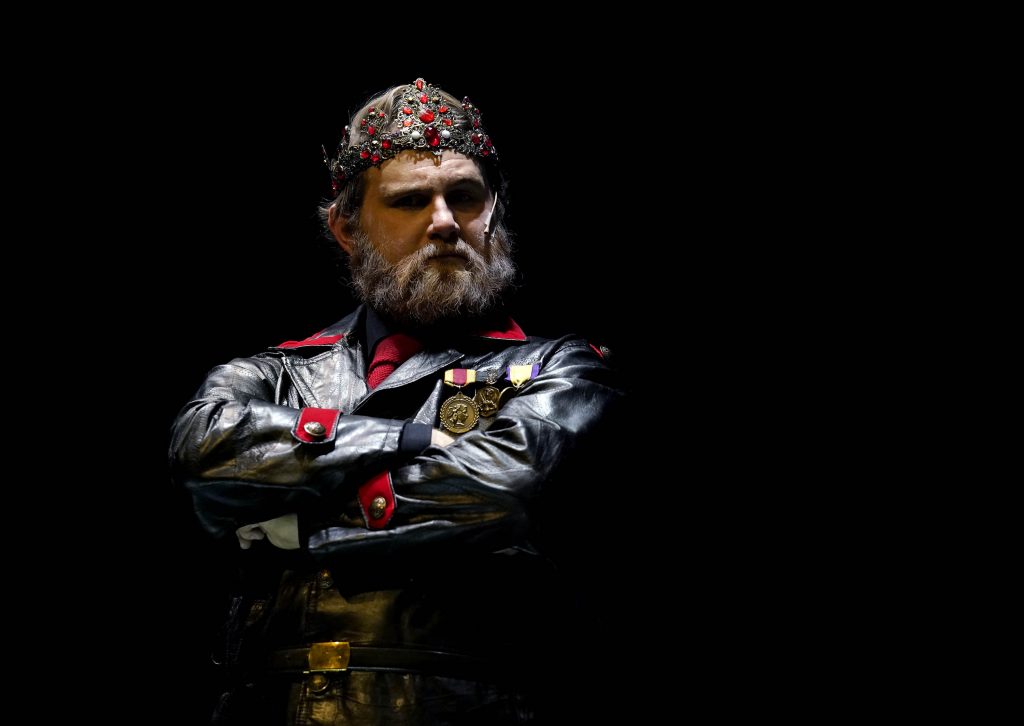
For Dawson Woolridge, putting on the costume strengthened his posture and demeanor in his role as Claudius, King of Denmark.
“Seeing yourself in costume is a big juxtaposition to how you view your everyday self and your character. Our director (Pensis) told us the word ‘vicious’ is a great way to describe the king, and I couldn’t see that until I put on the whole ensemble for the first time. The costumes have only brought out the best in all of us as actors.”
The costume designs are not confined by the restraints of what typically was worn in the 1600s. A variety of leather, combat boots and suits are on display, with color theory reinforced within the design to create imagery. As Gertrude, queen of Denmark, Sophia Jestice wears deep red to symbolize anger. The psychology major couldn’t help but notice the innerworkings of her castmates.
“I love seeing everyone’s different view on everything," she said. "I don’t think one character is right, and I don’t think one character is wrong. I love seeing different perspectives of how everyone else feels onstage, and not just my own character. It has to do with listening and paying attention to how others view things.”
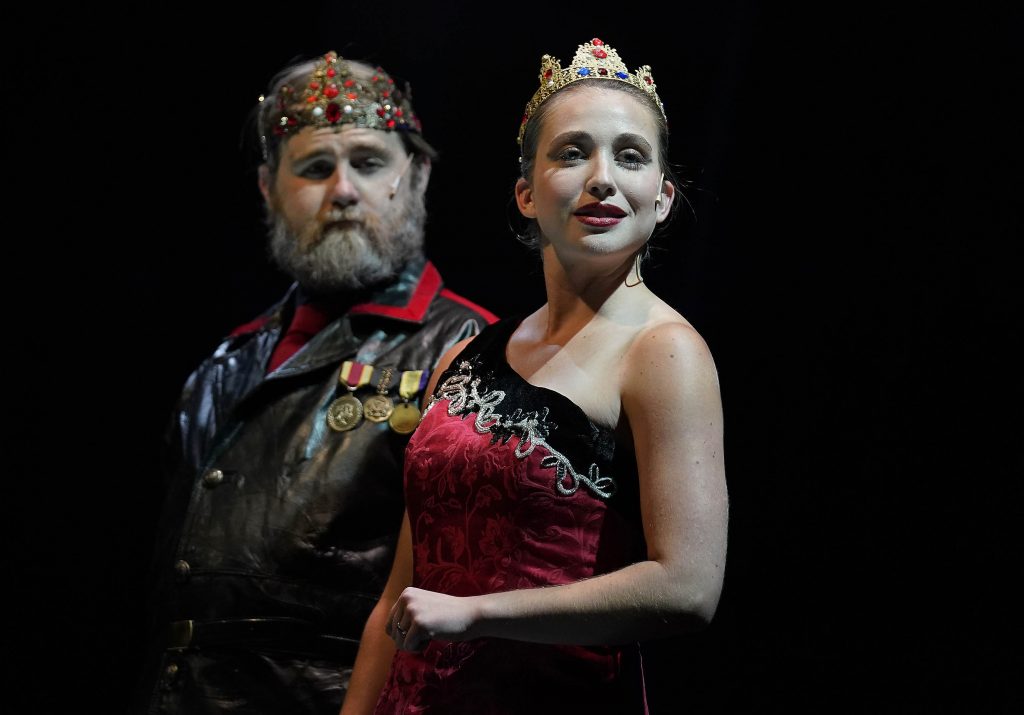
Call it a revenge-tragedy if you want, but it is so much more.
“It deals with a human condition that is universal. Everybody, regardless of who they are, deals with grief, remorse and mourning,” said Pensis. “I think that is what makes Hamlet incredibly human and one of the great things about Shakespeare — that he wrote about universal topics.”
There are so many interpretations, dissertations, theses and analyses written about Hamlet, and everyone has their own versions. As Hamlet said in Act 2, Scene 2, “The play’s the thing.”
****
IF YOU GO:
What: "Hamlet"
Where: Ethington Theatre
When: 7:30 p.m. Fridays and Saturdays and 2 p.m. Sundays, Sept. 23-25 and Sept. 30- Oct 2
Reserve your ticket here.
Contact staff writer Lydia P. Robles at 602-639-7665 or [email protected].
****
Related content:















